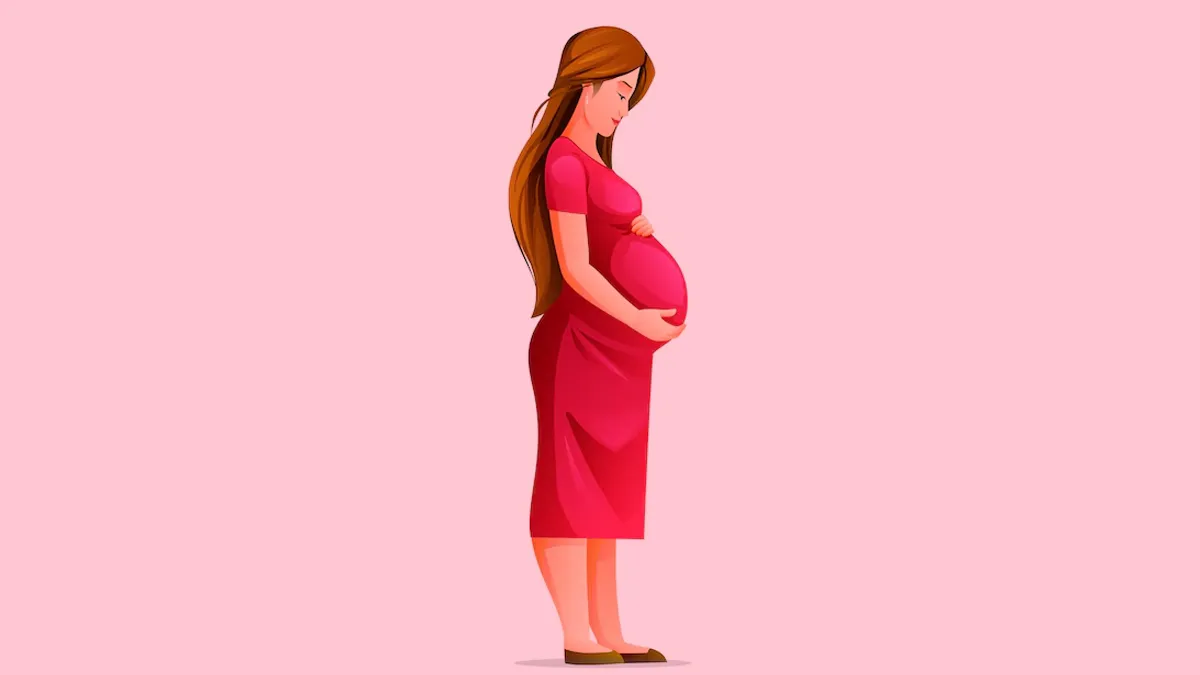
The trend of embracing motherhood later in life is on the rise. Once considered uncommon, having a baby at 40 is now feasible, thanks to medical advancements and evolving societal norms. Owing to the same, several bollywood actresses embraced motherhood in their 40s and delivered healthy kids. However, this decision demands a thoughtful understanding of its benefits and risks, alongside proper preparation and support. Dr Gunjan Gupta Govil, MBBS, Gynaecologist, Founder of Gunjan IVF World, Ghaziabad shared insights on the benefits and risks of late pregnancy.

Dr Gunjan Gupta said, “Motherhood at 40 often comes with emotional readiness and life experience.” Women at this stage typically bring patience, wisdom, and maturity to parenting. Many have achieved career milestones and financial stability, creating a nurturing and secure environment for their child, explained Dr Gunjan.
According to Dr Gunjan, parents in their 40s often have clear priorities, enabling informed and mindful parenting. Financial stability allows for better access to quality healthcare, education, and other resources, setting a strong foundation for their child’s future, she added.
Dr Govil highlighted that for some, delaying motherhood aligns with personal and professional goals, such as pursuing education or career aspirations. This timing reflects empowerment and ensures greater preparedness for the parenting journey.

Dr Gunjan highlighted that while rewarding, pregnancy at 40 does pose challenges. She said that fertility declines naturally with age, especially after 35, making conception more difficult.
Assisted reproductive technologies (ART), such as in vitro fertilisation (IVF), may be necessary, but these can be emotionally, physically, and financially taxing, explains Dr Gunjan.
Pregnancies at this age are associated with increased risks, including:
Dr Gunjan said gestational diabetes is more common in older mothers and these conditions require careful monitoring to protect maternal and fetal health.
Dr Gunjan highlighted that the likelihood of genetic conditions, such as Down’s syndrome, rises with age. At 40, the risk of Down’s syndrome is about 1 in 100. Advanced prenatal tests, such as non-invasive prenatal testing (NIPT), help detect abnormalities early, added Gunjan.

According to Dr Gunjan, the risks of preterm delivery or lower birth weight are higher, requiring specialised care in some cases. However, modern medical advancements have significantly improved outcomes. With comprehensive prenatal care and early intervention, many women in their 40s experience healthy pregnancies and deliveries.
Don't Miss: Recurrent Miscarriages: What Is It, Causes, Treatment, and More, As Per Gynaecologist
Dr Gunjan mentioned that preparation is key to a successful pregnancy at 40. She recommends a preconception consultation for assessing overall health, managing preexisting conditions, and exploring fertility options.
According to Dr Gunjan, regular prenatal checkups and screenings are essential to monitor maternal and fetal health during pregnancy. Advanced diagnostic tools, such as genetic screening or amniocentesis, aid in identifying potential risks early.
She suggests maintaining a healthy lifestyle. A balanced diet, regular exercise, and stress management support maternal and fetal well-being. Avoiding smoking, alcohol, and other harmful substances is critical for optimal outcomes.
Don't Miss: What Is Mindful Eating? 5 Habits With Expert Tips Revealed
Pregnancy in the 40s can be rewarding but may pose challenges. Proper planning and regular monitoring can make this chapter one of the most fulfilling journeys of your life.
Image Courtesy: Freepik
Also watch this video
Herzindagi video
Our aim is to provide accurate, safe and expert verified information through our articles and social media handles. The remedies, advice and tips mentioned here are for general information only. Please consult your expert before trying any kind of health, beauty, life hacks or astrology related tips. For any feedback or complaint, contact us at [email protected].